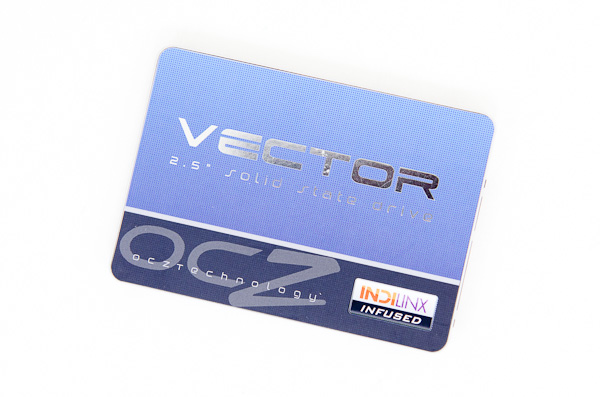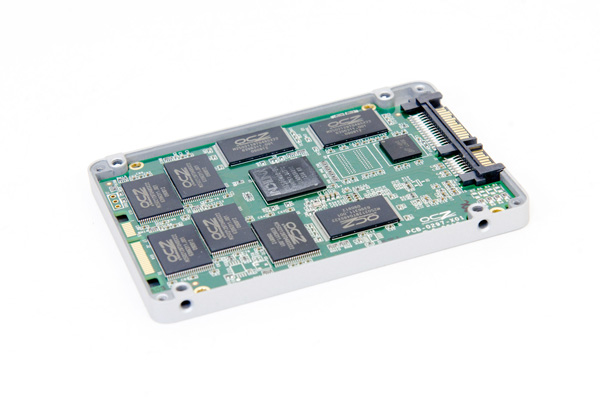OCZ Vector (256GB) Review
by Anand Lal Shimpi on November 27, 2012 9:10 PM ESTFinal Words
With the Vector, OCZ has built a price and performance competitor to Samsung's SSD 840 Pro, which previously remained peerless at the top of our charts. For a company that just weeks ago was considered down and out for the count, this is beyond impressive. Samsung has emerged as one of the strongest players in the consumer SSD space, and OCZ appears ready to challenge it. In our tests, Samsung typically enjoys better peak performance, but OCZ's Vector appears to have the advantage when it comes to worst case performance and IO consistency. The latter tend to be more valuable in improving overall user experience in my opinion. I would still like to see an S3700-class client drive and I'd be willing to give up top-end performance to get there, but I suspect that's a tall order for now.
The Vector's power consumption under load, given the performance it's able to deliver, is excellent. I wish idle power consumption were better, making the 830/840 Pro a better fit for ultra mobile applications. But under load the Vector and 840 Pro are indistinguishable from one another.
The only downside to the Vector really is its price, which like the 840 Pro is at a definite premium vs competition from the previous generation. As with all SSDs however, I fully expect Barefoot 3 and maybe even the Vector itself to fall in price over time. If you want the latest and greatest available today, Samsung's 840 Pro now has competition in OCZ's Vector.
The Barefoot 3 controller is quite promising. It certainly seems very capable from a performance standpoint without blowing through its power budget. It's no small feat if OCZ's best in-house silicon can be spoken of in the same sentence as Samsung's. The PLX and Indilinx acquisitions appear to have paid off. I'm curious to see how OCZ's improved validation and reliability testing fare in the long run. This isn't the first time that OCZ has promised to focus more on validation, but with Vector I do get the feeling that things are different. I didn't run into any compatibility issues or reliability problems with the Vector in my testing, but as always the proof is what happens when these drives make their way into the hands of end users.
Overall I'm impressed by the Vector. It's a huge improvement over the already good Vertex 4, and manages to compete in a different league by fixing some lingering performance issues with its predecessor. I had resigned myself to assuming no one would come close to Samsung on the high-end, but it's good to be proven wrong. Should OCZ be able to deliver Samsung-like performance and reliability, then I'll really be impressed.












151 Comments
View All Comments
Anand Lal Shimpi - Wednesday, November 28, 2012 - link
The write amount does actually scale with capacity, OCZ just tried to simplify things with how they presented the data here. In actuality, even the smallest capacity Vector should be good for more than 20GB of host writes per day x 5 years.Take care,
Anand
jwilliams4200 - Wednesday, November 28, 2012 - link
Wait, what? I thought OCZ claimed the warranty was the same for all capacities, 5 years of 36TB, whichever comes first.Are you saying that the 36TB number is only for the 128GB Vector, and the other two have double and quadruple that amount allowed before the warranty runs out?
Kristian Vättö - Wednesday, November 28, 2012 - link
OCZ only says 20GB of writes a day for 5 years in the Vector datasheet, no capacity differentiation:http://www.ocztechnology.com/res/manuals/OCZ_Vecto...
JellyRoll - Wednesday, November 28, 2012 - link
These endurance tests that they use to generate the predicted life of the SSD are with 100% fill and full span random writes. This prevents the SSD from doing many of the internal tasks as efficiently that reduce write amplification. You would need to be doing full span random writes to see these types of endurance numbers.Free capacity on the drive, and different types of data other than 4K random will result in much higher endurance.
These numbers are intentionally worst case scenarios.
A5 - Wednesday, November 28, 2012 - link
If your usage case is saturating a Gigabit connection 24/7, you need to be buying SLC Enterprise drives (and get a better network connection :P).36TB doesn't sound like much if you're making up crazy scenarios, but that is probably near a decade of use for a normal power-user. Another way to put it is that you'd have to re-install a 12GB game 3,000 times to get that number..
seapeople - Sunday, December 2, 2012 - link
But if you reinstall a 12GB game four times per day, and eight times on a Saturday, then your drive could be worn out after just three months!It's a reasonable use case for someone who only wants to spring for the budget 40GB SSD, but still wants to oscillate between playing four large games on a daily basis.
jwilliams4200 - Monday, December 3, 2012 - link
Your math is off. That is only 713GB.jwilliams4200 - Monday, December 3, 2012 - link
Oops, my math is off, too. But yours is still off.3 months is 13 weeks, so 13 Saturdays and 78 non-Saturdays.
12*(4*78 + 8*13) = 4992GB
So you have to do that 7.2 more times to get to 36TB, which is about 1.8 years.
jeff3206 - Wednesday, November 28, 2012 - link
Vertex, Octane, Agility, Synapse, Revodrive, Z-Drive, Velodrive and now Vector, plus an array of generation numbers and suffixes. Could OCZ's flash product naming system be any more complicated?Numerical product names may not be sexy, but they sure are easy to understand.
wpcoe - Wednesday, November 28, 2012 - link
Chart on first page of review shows Sequential Write speed for 128GB model as 530MB/s, when the OCZ site (http://www.ocztechnology.com/vector-series-sata-ii... shows it as 400MB/s.